The International Symposium of The Category 2 Institutes and Centres (C2C) under The Auspices of UNESCO in The Field of Natural Sciences was held from 15-17 May 2024 in Kuala Lumpur, Malaysia. The symposium was co-organized by UNESCO, the Government of Malaysia through International Science, Technology and Innovation Centre for South-South Cooperation under the Auspices of UNESCO (ISTIC), the Permanent Delegate of Malaysia to UNESCO and the Malaysian National Commission for UNESCO. Lidia Arthur Brito, Assistant Director-General of UNESCO, attended the entire conference and delivered the keynote report. 34 UNESCO category 2 centres in the field of natural sciences from 23 countries around the world attended the Symposium. The Symposium conducted exchanges and discussions focusing on seven themes, including "Water Science Research, Education and Capacity Development", "Hubs for sustainability: UNESCO-designated Sites and Networks", "Water and Disaster Risk Reduction", "Addressing the Planetary Crises: climate change and biodiversity", "Revolutionizing Capacity Building in Engineering for SDGs", "The Role of Basic Sciences in Advancing Emerging Technologies and Breakthrough Innovations", and "The intersection of Science and Policy: transformative progress".
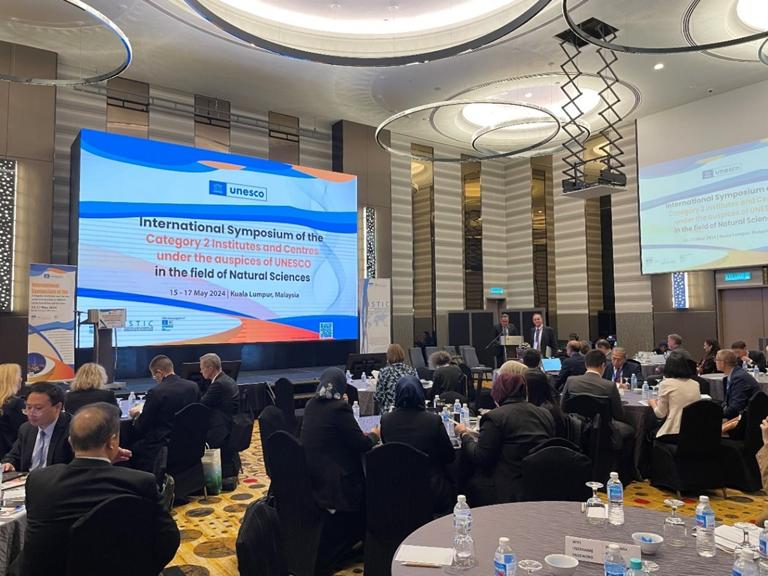
Commissioned by the Secretariat of the UNESCO International Knowledge Centre for Engineering Sciences and Technology (IKCEST), Prof. Wang Juanle, IKCEST Technical Expert and Executive Director of Disaster Risk Reduction Knowledge Service Sub-platform, attended the meeting on behalf of IKCEST and gave reports on the themes of "Water and Disaster Risk Reduction" and "Revolutionizing Capacity Building in Engineering for SDGs". Prof. Wang Juanle participated in the on-site discussion and round table discussion, and introduced the poster of IKCEST.
In the report "An open science infrastructure: Disaster Risk Reduction Knowledge Service in IKCEST", Prof. Wang Juanle introduced the achievements of IKCEST in terms of platform architecture, resource construction, international training, and open services since its construction in 2014. Focusing on the thematic topic on disaster risk reduction, he highlighted the construction and services of Disaster Risk Reduction Knowledge Service Sub-platform (IKCEST-DRR). The sub-platform has established a Belt and Road knowledge service technology model for disaster risk reduction, and has successively provided rapid knowledge services for major international disasters such as the floods in Pakistan, the Turkey-Syria earthquake and the hurricane in Libya. Currently, IKCEST-DRR platform has been selected by UNESCO as a global demonstration platform for open science in disaster risk reduction.
In the report "Best Practices of SDGs and its Impact on the Post-2030 Vision from the IKCEST", Prof. Wang Juanle introduced IKCEST's resource development and sharing services in support of the overall Sustainable Development Goals (SDGs) as well as specific sub-goals such as SDG2, 4, 6, 9, 11, 13, and 15. He emphasized the best practices of IKCEST in eight typical applications, including public health, engineering education, intelligent city, forest conservation, desertification control, disaster risk reduction, international big data competitions, and international training.
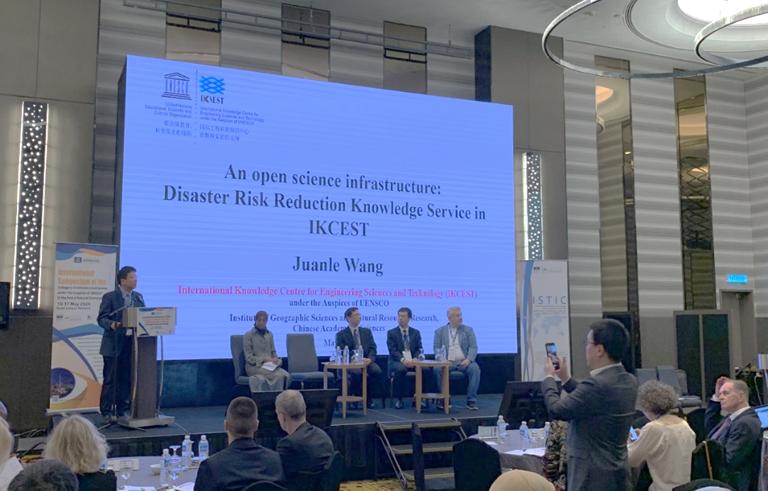

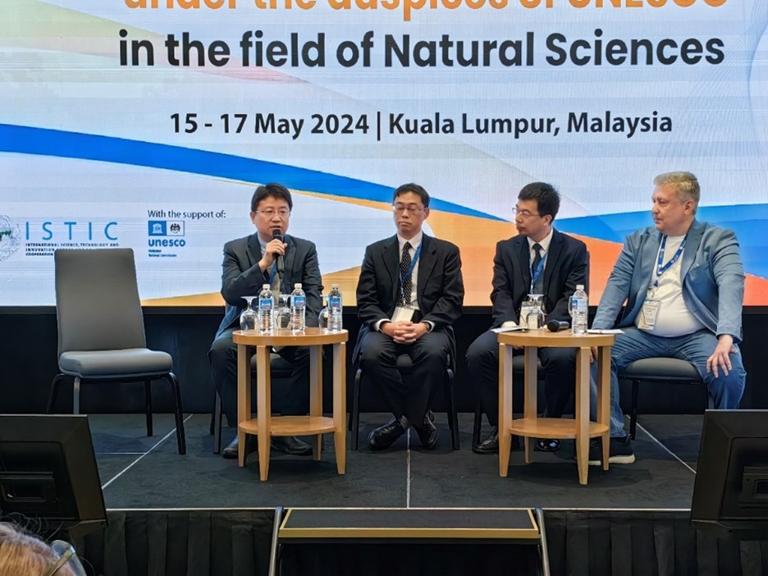
The conference also held an exhibition of posters from UNESCO Category 2 Centres. Lidia Arthur Brito, Assistant Director-General of UNESCO, Fadhlina Sidek, Minister of Education of Malaysia, and Chang Lih Kang, Minister of Science, Technology and Innovation, as well as relevant experts visited the IKCEST poster exhibition and engaged in discussions on topics of interest.
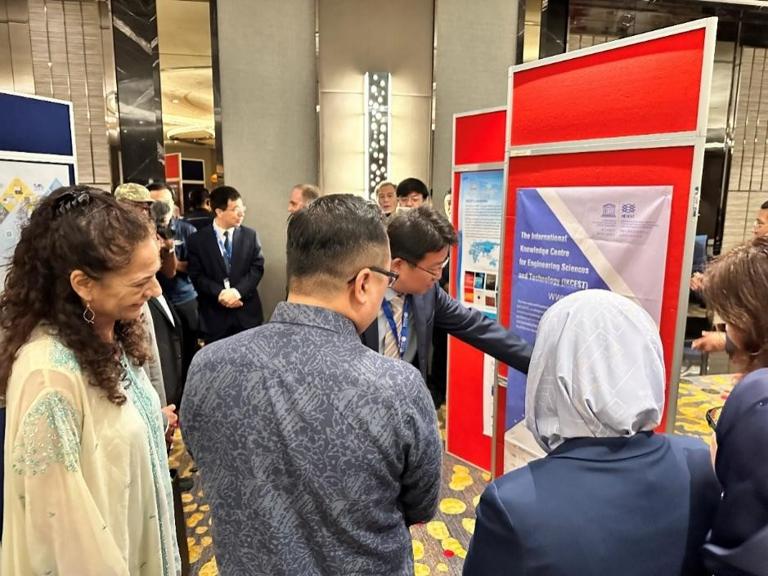
During the conference, Prof. Wang Juanle also established connections with the Natural Hazards Research Centre of the Universiti Teknologi Malaysia, the Centre for Hydro-Ecological Research of the Polish Academy of Sciences, the Research Centre for Water Security and Sustainable Management of the Republic of Korea, the Research Centre for Water Hazard and Risk Management of Japan, and the Centre for Water Law, Policy and Science Research of the United Kingdom, laying the groundwork for the subsequent in-depth cooperation among the Category 2 Centres.
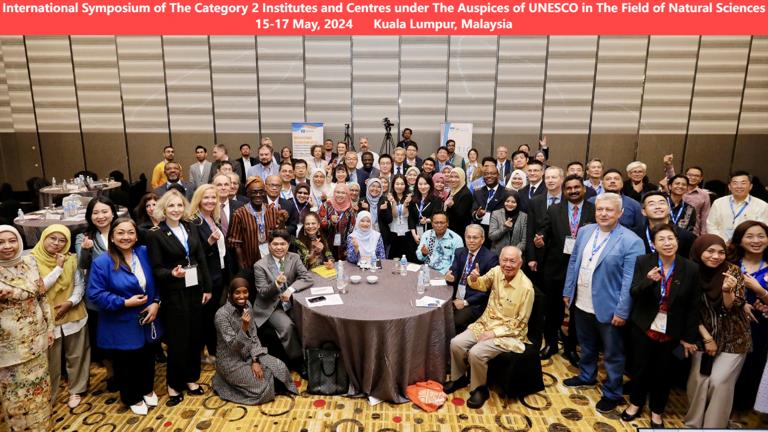
Contribution: IKCEST Disaster Risk Reduction Knowledge Service
Comment list ( 0 )
